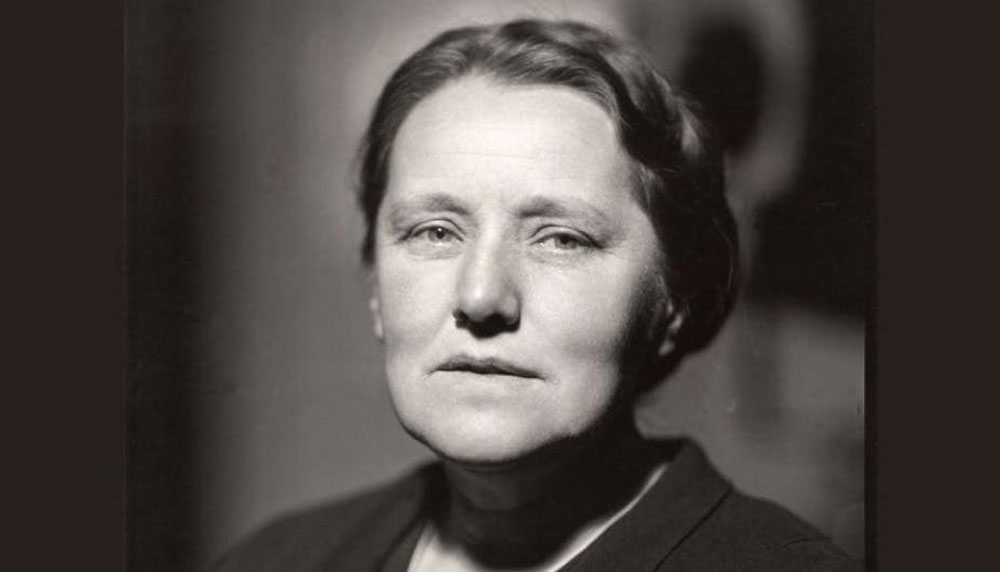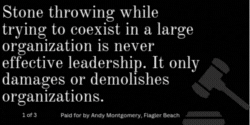
By Peter West
It is often said that we live in a “post-truth” era. It is unclear at times what role, if any, truth plays in politics. During the pandemic, world leaders dismissed the advice of experts and acted against empirical data.
Democracies have felt precarious – in the US, during the Trump presidency, and in countries like Brazil, Hungary and Poland currently. Integral to such corrosion of democracy (as George Orwell made clear in his novel 1984) is the distortion of truth and facts in favor of a particular agenda.
In times of crisis, it can be helpful to look backwards at how our forebears have coped with similar situations in history.
Now, I suggest we look to an under-appreciated philosopher writing just before the outbreak of the second world war, as fascism and communism threatened the stability of European democracy.
Susan Stebbing was the first woman in the UK to be appointed to a full professorship in philosophy (at Bedford College in 1933). She came through the ranks of academic philosophy alongside some of Britain’s best-known philosophers, including Bertrand Russell.
Like most women in philosophy’s history, Stebbing has been overlooked in favour of her male counterparts. She is not a household name, even though she published prolifically and served as president of the UK’s two largest philosophical societies, as well as Humanists UK. Only recently has her work gained its deserved attention among philosophers.
Stebbing’s 1939 book Thinking to Some Purpose taught a general audience to use the tools of philosophical logic to engage in healthy public discourse. She calls for people to “think clearly,” unclouded by “unconscious bias and unrecognized ignorance”.
Stebbing’s lessons on thinking clearly and taking politispeak with a grain of salt can help us navigate our fraught political climate today. Here are just a few.
Question your most cherished beliefs
Stebbing claims that all of us have long-held beliefs we are not willing to doubt. She explains that in such cases we confuse the “passionateness” of our feelings for a “guarantee of truth”.
Stebbing argues it is important to question all our beliefs, especially in politics. Once we’ve identified our most cherished beliefs, we might ask ourselves: could I reasonably accept that now? If the answer is no, they ought to be weeded out.
Avoid the fallacy of ‘special pleading’
Stebbing thinks people are generally pretty poor at putting themselves in one another’s shoes. We make claims about how others should behave, without considering whether we would do the same in a given situation.
She writes: “A safeguard against this mistake is to change you into I.” For instance, before condemning one state for selling arms to another, I ought to consider whether my own state does the same – and whether I am happy with it. Only then can I be sure I am not acting hypocritically.
Be wary of emotive language
![]() Stebbing distinguishes between two types of language: “scientific” and “emotive”. Scientific language is used to make objective claims. Emotive language is intended to evoke strong feelings. Often, in politics (and journalism), emotive language is disguised as scientific language –- giving words “a significance in addition to their objective meaning”. Think of the way “woke” is used by right-wing commentators. It isn’t so much describing someone, as getting you to feel a certain way about them.
Stebbing distinguishes between two types of language: “scientific” and “emotive”. Scientific language is used to make objective claims. Emotive language is intended to evoke strong feelings. Often, in politics (and journalism), emotive language is disguised as scientific language –- giving words “a significance in addition to their objective meaning”. Think of the way “woke” is used by right-wing commentators. It isn’t so much describing someone, as getting you to feel a certain way about them.
Paying attention to whether politicians are trying to appeal to our emotions can help us tell a convincing argument from a cheap, emotional dog whistle. We can then decide whether to allow ourselves to be persuaded by our feelings or to turn to more objective forms of evidence.
Look out for empty slogans
Stebbing emphasizes that politicians make good use of slogans: short statements that stick in the minds of voters. Slogans are not inherently harmful, she thinks – they are often rooted in truth and can reveal meaningful assertions. However, some slogans seem meaningful but wilt under scrutiny. If a slogan is empty, it has no role to play in rational argument and should be discarded.
Consider, for example, Theresa May’s claim that “Brexit Means Brexit”. While this initially sounded like a firm commitment to follow through with the referendum result, over time it became clear that no one really knew what “Brexit” was going to mean at all.
Think freely
Stebbing is part of a long line of philosophers, dating back to the 18th-century Enlightenment, known as “free-thinkers”. Free-thinkers believe that we should only form judgments based on our own independent reason, as opposed to church teachings, newspaper propaganda or party politics.
If your judgment tells you that something doesn’t sound right, pursue that thought. We all have an innate “capacity to follow an argument” that we should put to good use. Rather than voting the way we have always voted or taking the advice of others, we should weigh up the available evidence and form our own conclusions.
Stebbing’s work is finally attracting the attention of other philosophers, but it was never her intention to be read only by her peers. She wanted to bring philosophy out of the ivory towers of Cambridge and Oxford and into the hands of ordinary people. She thought politicians underestimated the public’s ability to follow an argument, and that instead of trying to provide proof of their policies, rely on making themselves appear likeable and painting their opponents as frauds.
Stebbing thought there was something we can do about this state of affairs – we can bring truth back into politics by learning to think clearly and holding politicians to greater scrutiny. Indeed, many of our current leaders would do well to study her lessons.![]()
![]()
Peter West is a Teaching Fellow in Early Modern Philosophy at Durham University in England.
The Conversation arose out of deep-seated concerns for the fading quality of our public discourse and recognition of the vital role that academic experts could play in the public arena. Information has always been essential to democracy. It’s a societal good, like clean water. But many now find it difficult to put their trust in the media and experts who have spent years researching a topic. Instead, they listen to those who have the loudest voices. Those uninformed views are amplified by social media networks that reward those who spark outrage instead of insight or thoughtful discussion. The Conversation U.S. seeks to be part of the solution to this problem, to raise up the voices of true experts and to make their knowledge available to everyone. ![]()
































Devrie says
“Stebbing thinks people are generally pretty poor at putting themselves in one another’s shoes. We make claims about how others should behave, without considering whether we would do the same in a given situation.
She writes: “A safeguard against this mistake is to change you into I.” For instance, before condemning one state for selling arms to another, I ought to consider whether my own state does the same – and whether I am happy with it. Only then can I be sure I am not acting hypocritically.”
I don’t know that many of us reading this article are fully prepared to look at our own fallacies in political reasoning and posturing. Most of us are probably thinking about the importance of these suggestions for all the _other_ people.
Mike Cocchiola says
Roughly 25% of this country is incapable of rational thought, introspection, or reality-based reasoning. They are lost. Another 20% are probably capable of rational thought, but choose not to exercise that part of their brain because it is much more comforting and uses less energy to be led blindly by those who share their fears and biases. I’m afraid we’ve gone down a rabbit hole and the best we can hope for is that there remain enough responsible people who actually think rationally and can contain and marginalize the worst of the crazies – the Trumps, the McConnells, the Bannons, the Gosarts, the Taylor-Greens, the Gaetzs, the Gohmerts… and the DeSantises, the Lowes, the Dankos, the Barbosas, and the Mullinses.